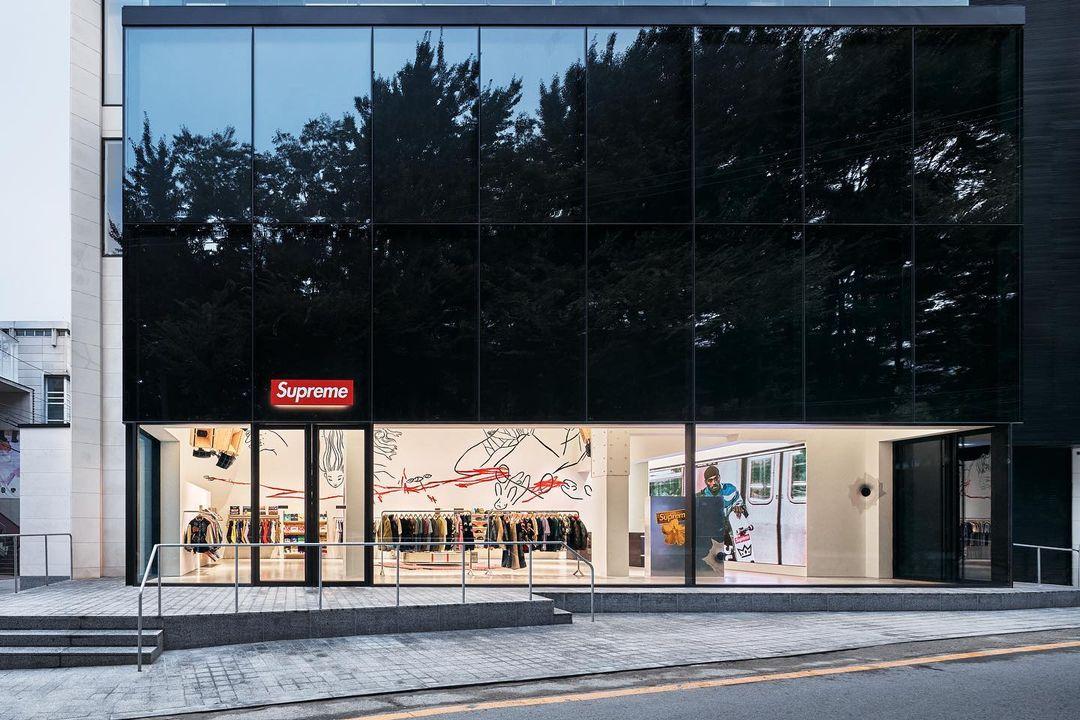Here’s How Seoul Became a Retail Mecca
South Korea’s pop-cultural stock is surging thanks to the domination of K-Drama, K-Pop, K-Beauty and K-Fashion in the online zeitgeist. Spurred on by viral content like Parasite, , New Jeans and BTS, Korean culture has permeated the Western world. As a result, the country’s celebrity exports have been employed as high-end brand ambassadors that tempt the tastes of the global fashion elite. Artist Rudyindahouse says South Korea has now ‘attracted worldwide attention.’
The attention garnered with the help of a booming entertainment industry has exposed Seoul’s massive dedicated communities of trend-driven fashion enthusiasts to Western society, and now the world wants in. The city’s growing count of international, big-brand flagships has risen to new heights, with each brand hoping to tap into the growing count of influential communities and make real connections with the fast-pace trendsetters.
The South Korean retail boom of the 2020s isn’t a new phenomenon for locals. Korean industry players like boutique retailer have always felt the country could become a global fashion superpower, with founder EunHyuk Lee all the way back in 2009 that he thought South Korea had ‘the unquestionable to become a blue-chip international market’. Kasina now boasts multiple stores in the capital city alone, and like many other countries around the globe, it was in-the-know spots like Kasina that kept sneaker and streetwear culture alive. The sneakersphere hadn’t yet infiltrated pop culture, but it was just around the corner.
The wider markets caught on around the tail-end of the 2010s, and rappers and artists with cult fanbases helped streetwear and sneakers penetrate popular culture. It was the same in Korea, albeit with K-Pop stars. ‘ was the one who made non-sneakerheads start collecting sneakers,’ said Peter Gambo Park, Seoul-based sneakerhead. ‘It was big when the dropped, because GD was one of the most influential fashion icons’. When Team Swoosh debuted their then-newest to the Korean market, Big Bang’s G-Dragon was the centre of the ‘Kiss my Airs’ campaign, and with his 22.5 million Instagram followers, led the pairs to sell out in minutes. Introduced to sneaker and streetwear culture through their favourite K-Pop idols, ‘the general public [in Korea] seems to have gotten a lot better at understanding the sneaker market’, according to Byunghuk Lee, owner of Concept Shop. Not only getting a better understanding, but the appetite for sneakers and streetwear in the country has expanded since 2017, because, in Gambo Park’s words, ‘It's all about fashion. Koreans are very sensitive to trends, and don't like to be left behind’. Rudyindahouse agrees, stating that Korea is ‘a country that understands trends really quickly’.
Almost-every major high-end brand has observed the power of the Korean market and chosen to host their own extravaganza in Seoul. have always felt the country could become a global fashion superpower, with founder EunHyuk Lee Squid Game director Hwang Dong-Hyuk to act as a creative advisor. Capital-F fashion brands aren’t the only ones who’ve taken notice, as streetwear behemoths like and have recently opened flagship outposts in Seoul. FA flung the doors to the two-story shop designed by Andrea Caputo last June. Interestingly, this is Fucking Awesome’s third location and the only one outside their homeland of North America. For Supreme, this is the skate legend’s sixteenth brick-and-mortar, but their first Asian location outside of Nippon.
When asked why these familiar names in fashion are making Seoul their next point of call, Woonbi Jung of HBX Korea answered: ‘I believe that it is the growth of the community in South Korea. Sneakers, music, art, fashion, skateboarding and clubs in the creative scene here have grown for over 25 years together’. The K-content machine may have been the catalyst that sparked the flooding of Western brands to the shores of Seoul, but the chance to be involved in real subcultural movements helped solidify their choice. Jung continued, ‘Brands like Supreme and Fucking Awesome value creative communities. If the brands aimed to increase their sales, they would’ve opened their stores somewhere in the Middle East. From my point of view, the main reason why those brands have decided to open their business here is because they want to be part of the community.’
Through their celebrity-fuelled, light-speed culture, unbridled output of K-content, and community building, Seoul has forged its own path to becoming one of the pop-cultural epicentres of the world. On the way to becoming a global fashion capital, you can expect more stores to lay ground in Seoul throughout 2023. , and many more overseas brands are finally set to enter Korea in 2024, which makes for a very positive phenomenon for the Korean fashion scene.
have always felt the country could become a global fashion superpower, with founder EunHyuk Lee !
